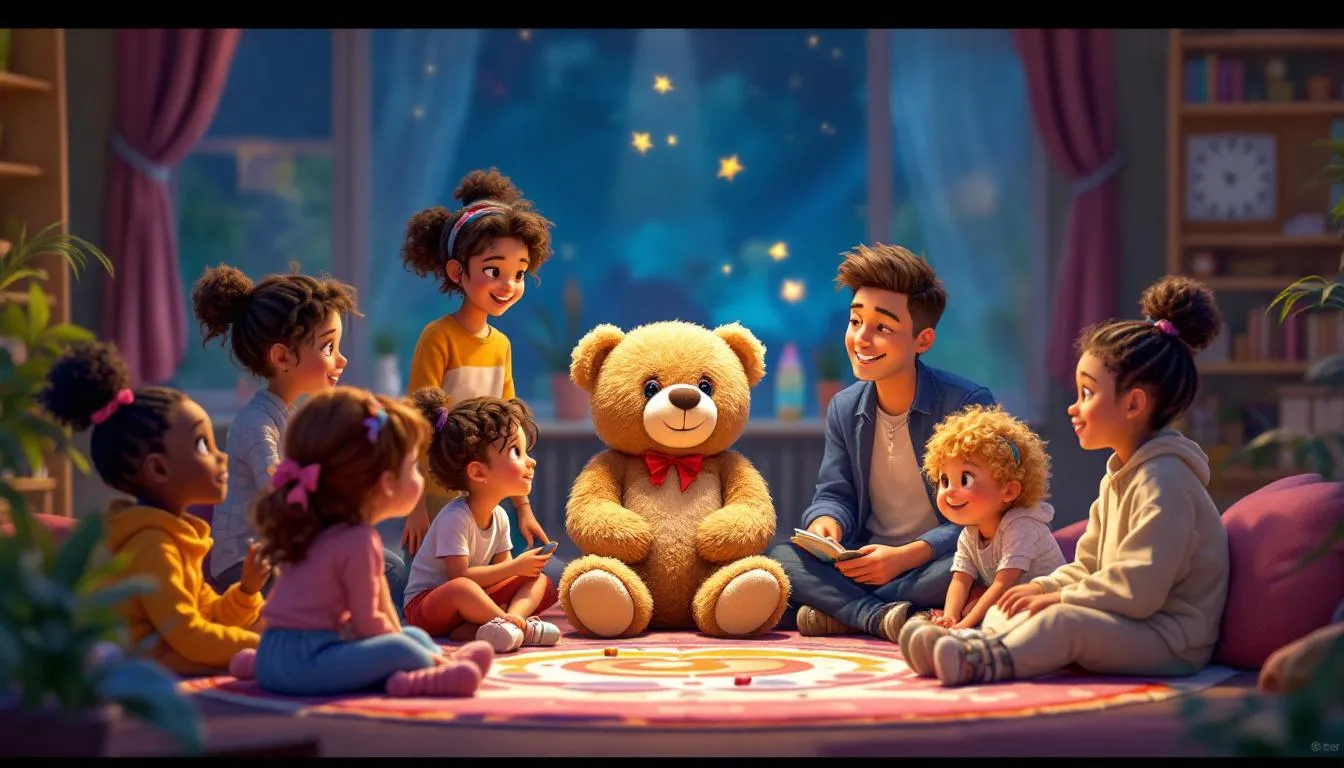Table of Contents
Introduction
Welcome to a journey into the world of “Selfish Reasons to Have More Kids,” a thought-provoking book by economist Bryan Caplan. This blog post explores Caplan’s intriguing arguments, which challenge conventional wisdom by proposing that having more children can be both economically and emotionally rewarding. By examining his central thesis, we can gain new insights into how parenting impacts personal fulfillment and societal contribution. Let’s dive into how Caplan’s unique perspective might shift our understanding of family dynamics and decision-making.
Understanding the Author’s Perspective
Bryan Caplan, the mind behind “Selfish Reasons to Have More Kids,” isn’t your typical parenting guru. As an economist and professor at George Mason University, Caplan brings an analytical flair to the parenting conversation, combining data with a dash of humor—something every parent could use more of, right?
His journey into this parenting philosophy began with a simple yet profound question: Are we making parenting harder than necessary? Motivated by the chaos of modern parenting, Caplan set out to challenge the notion that raising kids is an onerous, all-consuming task. He argues that the perceived sacrifices of parenting are often exaggerated and that the rewards, especially when viewed through an economic lens, are substantial.
Caplan’s key arguments are both bold and refreshing. He suggests that parents overestimate their influence on their children’s long-term outcomes, advocating instead for a more relaxed approach. By letting go of the super-parenting ideal, parents can enjoy more children without the stress that often accompanies modern parenting. Research backs his claims, pointing to studies that show genetics play a more significant role in child development than we might think, reducing the pressure on parents to micromanage every aspect of their kids’ lives.
His perspective opens the door to a more enjoyable parenting experience, suggesting that having more children can be a source of joy, not just a drain on resources and sanity. As we consider these ideas, let’s delve deeper into the tangible benefits Caplan sees in expanding one’s family.
The Economic and Logical Benefits
When it comes to having more kids, the phrase “economic benefits” might sound like an oxymoron. Isn’t the only thing multiplying faster than your love for your children the number of zeros on your credit card bill? Caplan invites us to view the decision through an economist’s lens, offering a fresh perspective on the cost-benefit analysis of expanding your family.
Let’s start with the costs. Yes, children require resources—food, clothing, education, and the occasional bribe in the form of ice cream. However, Caplan argues that many of these costs are fixed. The more children you have, the more you spread these costs around. Think of it like a family Netflix account: whether you have one kid or five, the subscription cost remains the same. Caplan suggests that by having more children, you actually lower the per-child cost, achieving a form of parenting efficiency. Who knew parenting could be so economical?
Looking to the future, Caplan emphasizes the long-term economic advantages. More children can mean a larger support network as you age—kind of like having your very own all-star team of tech support for navigating the world of senior gadgets. Plus, there’s the potential for increasing your family’s overall wealth and stability through shared responsibilities and cooperation.
This economic perspective encourages us to re-evaluate entrenched beliefs about the financial burden of larger families. As we continue our exploration, let’s tackle some common myths surrounding parenting that might just have us re-thinking even those “impossible” tasks.
Challenging Common Parenting Myths
One of the most pervasive myths in parenting is that more kids automatically mean more stress. It’s easy to imagine a house full of children as a never-ending whirlwind of chaos, noise, and laundry. But Caplan argues this is more myth than reality. With more kids, many parents find themselves becoming more efficient and relaxed. It’s like playing a video game: with each level (or child), you learn new skills and shortcuts, and before you know it, you’re a pro at managing the chaos. Plus, siblings often entertain each other, providing built-in playmates that can ease a parent’s workload.
Another common misconception is that the more children you have, the less attention each one receives, leading to diminishing returns. Yet, Caplan suggests that children might not need as much hands-on parental attention as we think. Kids benefit tremendously from interactions with their siblings and learn vital social skills in the process. Think of it like a classroom: while a teacher can’t give every student individual attention all the time, students still learn from each other. In family life, this translates to kids learning patience, negotiation, and empathy—skills that are invaluable as they grow.
Finally, there’s the age-old debate of quality versus quantity. Many believe that having fewer children allows for a richer, more enriched upbringing. But who says you can’t have both? Caplan argues that the quality of parenting isn’t necessarily diluted by more children. Instead, it often improves as parents become more experienced and confident. The love you have isn’t a finite resource; it’s more like a sourdough starter—it grows and multiplies with each child added to the family. This shift in perspective encourages thoughtful reflection on what truly matters in the parenting journey.
As we ponder these myths, it becomes clear that the benefits of a larger family extend beyond the tangible and economic. The next layer to peel back reveals profound psychological and emotional rewards that can enhance the experience of both parents and children.
The Psychological and Emotional Rewards
Imagine the warm embrace of a family dinner, with laughter bouncing off the walls and the comforting hum of sibling chatter. These moments are the heartbeats of a larger family, where enhanced sibling relationships flourish. In a bustling household, kids often develop deep, enduring bonds with their brothers and sisters. They learn to share, compromise, and stand up for one another, creating ties that can last a lifetime. It’s like having a built-in support group, where each sibling plays a role in the family narrative, contributing to a rich tapestry of shared memories and experiences.
In larger families, the emotional support network extends beyond just siblings. Parents, too, find solace in the busy, lively atmosphere. There’s a certain magic in knowing that there’s always someone around to share your thoughts, dreams, or even just a quiet moment. This network can be a source of strength during challenging times and a wellspring of joy during celebrations. It’s like living in a sitcom where the laughs are real, and the love is palpable.
The joy and personal fulfillment derived from a larger family is something truly special. Each new child brings a unique spark, adding to the family’s dynamic and enriching the lives of everyone involved. The more, the merrier, as they say! Parents often find that with each child, their capacity for love expands, much like adding layers to a cake—each one more delightful than the last. This abundance of love and joy is a testament to the emotional rewards of a larger family, providing immense satisfaction and a sense of purpose.
With the psychological and emotional benefits considered, it’s also important to reflect on how these dynamics play out on a broader scale, influencing societal and cultural perceptions of family life.
Society and Cultural Impacts
In the grand tapestry of society, larger families weave a unique and vibrant thread that contributes to the richness of community life. They often become the hubs of social interaction, where family gatherings transform into neighborhood events, fostering a sense of belonging and camaraderie that extends beyond family lines. This sense of community is a powerful societal asset, promoting empathy, cooperation, and mutual support among individuals.
Culturally, perceptions of family size vary widely across the globe, influenced by historical, economic, and social factors. In some cultures, larger families are seen as a source of pride and strength, reflecting values of unity and resilience. In others, the trend leans towards smaller families, often driven by urbanization and economic considerations. These cultural perceptions can significantly shape family planning decisions, as individuals navigate societal expectations and personal desires.
Societal norms play a crucial role in family planning, subtly guiding decisions through implicit and explicit messages. In societies where career and individualism are highly valued, there might be a tendency to delay or limit family expansion. Conversely, in communities where family is the cornerstone of social structure, having more children might be encouraged and celebrated. These norms create a framework within which families make their choices, balancing personal aspirations with societal influences.
As we reflect on these societal and cultural impacts, it’s essential to consider the practical aspects of expanding a family in today’s world. These considerations can help families navigate the complexities of modern life while embracing the joys of a larger household.
Practical Considerations for Expanding Families
Expanding your family is a delightful adventure, but it’s one that comes with its own set of practical considerations. Let’s start with the big one—financial planning. Just like planning a road trip, having a map (or a budget) helps. While children are priceless, they do come with a price tag. Budgeting for essentials like food, clothing, and education is crucial. Consider setting up a family budget that accounts for current expenses and future needs, such as college funds or emergency savings. It’s like packing a suitcase for a long journey—better to be over-prepared than under-prepared!
Then there’s the juggling act of work-life balance. This can sometimes feel like trying to keep a dozen plates spinning at once. Having more kids can mean more demands on your time, but it also offers the opportunity to reassess priorities and create a family structure that works for everyone. Flexible work arrangements, whether through remote work or adjusting hours, can be a game-changer. Remember, it’s okay to ask for help and delegate tasks. Think of it as your family’s own orchestra, where every member plays a part in creating harmony.
Creating a supportive home environment is also key. This means fostering a space where each family member feels valued and heard. Establishing routines can bring a sense of order amidst the chaos, and carving out time for family activities helps reinforce bonds. It’s like building a cozy nest where everyone can thrive. Encouraging open communication and nurturing each child’s individuality will make your home a haven of love and support.
As we consider these practical elements of family expansion, it’s important to acknowledge that not everyone shares the same enthusiasm for larger families. There are criticisms and counterarguments that provide a broader perspective on this topic.
Criticisms and Counterarguments
While Bryan Caplan offers an invigorating perspective on the benefits of having more kids, it’s crucial to consider the criticisms and alternative viewpoints that exist. Some critics argue that Caplan’s views might oversimplify the complexities of parenting. They suggest that the economic models he uses don’t fully capture the emotional and physical demands of raising multiple children, especially for parents who may not have access to the same resources or support systems.
Alternative perspectives on family size often emphasize quality over quantity, focusing on the potential strain larger families can place on parents’ time, energy, and financial stability. These viewpoints highlight the importance of dedicating ample attention and resources to each child to foster their development and well-being. Critics also point out that the benefits Caplan describes may not universally apply, particularly in different cultural or socio-economic contexts where the pressures and expectations surrounding family life can vary significantly.
At the heart of this discussion is the principle of personal choice. Every family is unique, and decisions about size should consider individual circumstances and values. For some, the joy of a large family aligns perfectly with their lifestyle and aspirations. For others, a smaller family may offer the balance and satisfaction they seek. Understanding that there is no one-size-fits-all answer is essential in navigating these decisions. Each family must weigh its priorities, resources, and dreams to find the path that brings the most joy and fulfillment.
This diverse conversation around family size invites us to reflect on the broader implications and personal decisions each family faces. Whether you lean towards a bustling household or a cozy clan, the journey of parenting is a profound and personal one, offering endless opportunities for growth and connection.
Conclusion
Reflecting on Bryan Caplan’s intriguing take on parenting, we’ve journeyed through a landscape of thought-provoking ideas. From the economic efficiencies of a larger family to the heartwarming bonds formed among siblings, Caplan challenges the traditional narrative of child-rearing. His perspective encourages us to see the joys of parenting through a new lens—one where the rewards of having more children can outweigh the perceived challenges.
We’ve explored how having a bigger brood might lighten the load, from sharing costs to the delightful dynamics of sibling camaraderie. And while it’s essential to acknowledge the critiques and alternative viewpoints, Caplan’s insights offer a refreshing reminder that family size is a deeply personal choice.
Ultimately, the decision to expand your family is as unique as your fingerprints. Whether you dream of a bustling household or find contentment in a smaller circle, the key lies in aligning your family goals with what brings you the most joy and fulfillment. It’s a decision that should resonate with your personal values, lifestyle, and aspirations.
As you ponder these ideas, I invite you to continue exploring and gathering insights that will help you on this remarkable journey of parenthood. There are always more stories to hear, more wisdom to gather, and more joy to discover—each step of the way.
Further Reading and Resources
For those eager to dive deeper into the world of parenting, consider exploring books like “The Nurture Assumption” by Judith Rich Harris for an intriguing take on parental influence, or “Parenting with Love and Logic” by Charles Fay and Foster Cline for practical advice. Websites like Family Planning Association and Planned Parenthood offer valuable resources for those considering family expansion. Research studies on family dynamics, such as those by the Pew Research Center, provide insights into modern family trends. You might also explore resources for creating personalized stories, like KidTeller, which creates custom storybooks where your child is the hero, adding a magical touch to reading time. Embrace the wealth of knowledge available and let it guide you on your parenting journey.







